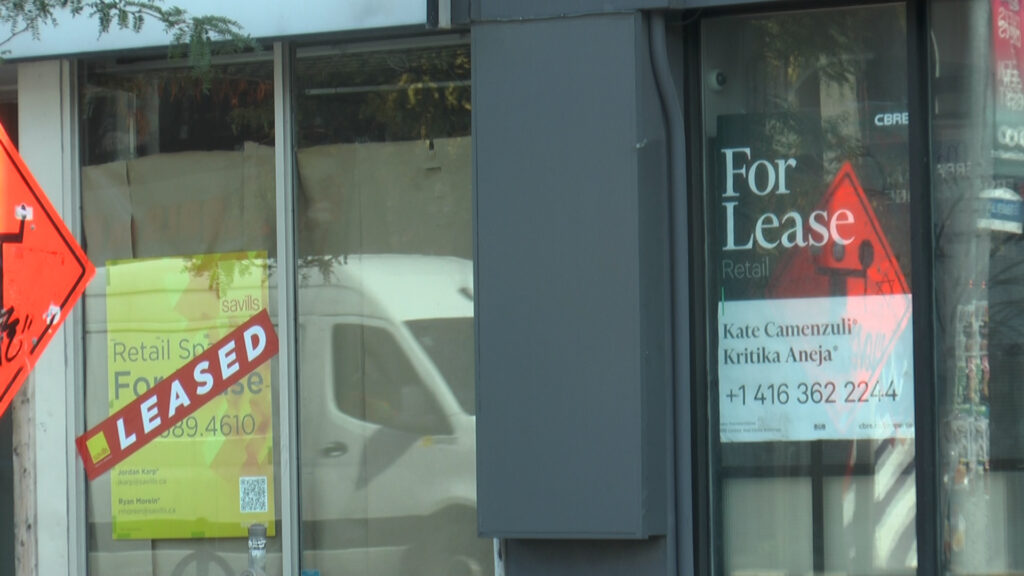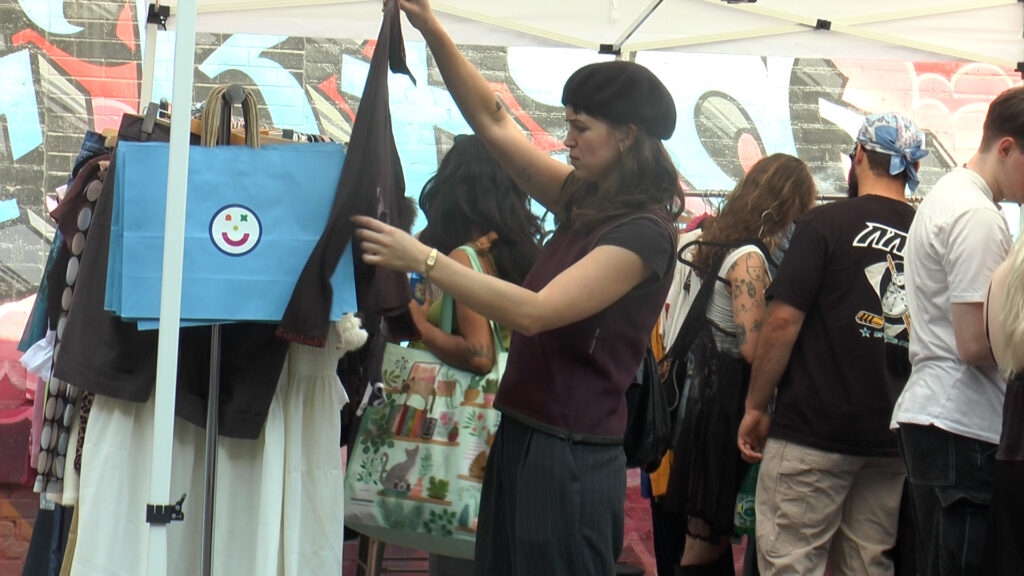Listen to the whole story here:

Vacant storefronts are a growing issue in the city, and this fall, Toronto City Council will meet with city planners to assess new support for pop-up markets and small businesses as a possible solution.
According to a 2025 Statistics Canada report, business closures rose to 4.8 per cent in May 2025, lower than the 5 per cent reported in June 2024, but still quite high. Last March, Council passed a motion spearheaded by Coun. Josh Matlow which asked city planners to find ways to fill empty units and even explore tax breaks for those who host pop-ups.
“These vacant storefronts create several issues,” said Matlow about the motion. “An uglier, less vibrant streetscape, more crime and public safety issues, and reduced economic activity in our city.”
Simon Wong, the Executive Director of the Queen West Business Improvement Area (BIA) says short-term leases benefit businesses that cannot afford the area’s rising rent costs.
“Vacancy, for me, provides an area of opportunity,” said Wong. “To help small business[es] and to encourage [spaces] to pop up and have markets.”
He said pop-up markets help solve both the issue of vacancy while boosting support for small businesses.
Wong says the BIA works with property owners, landlords, and City Council to support business improvement and economic development from Simcoe to Bathurst Street along Queen St. West.
City planners and policy makers are expected to report their progress to Council in the fourth quarter of the year.
Angela Drennan, the Vice President of Legislative Affairs for Ontario from the Canadian Federation Of Independent Business (CFIB), said Queen West retailers are facing a difficult time.
“Small business retailers in Queen West can no longer balance rising costs and lost revenue due to the lasting impacts of COVID, typically debt,” said Drennan. “And now the current tariff uncertainty is adding further pressure.”

Wong said the popularity of the Queen West area has driven rent prices up alongside the rise of e-commerce and the lasting impact of the pandemic.
He said landlords are finding it difficult to fill long-term leases due to high rent costs, making pop-up efforts a viable solution. He said short-term leases are better than none.
Quintin Ermes is the founder of Good Friends Market, a seasonal pop-up market in Toronto’s west end featuring booths of independent vintage reselling businesses.
He says the market allows small, independent businesses to expand their reach.
“[The pop-up market] provides opportunities for small businesses to network and create community,” said Ermes. “And especially those who can’t necessarily afford a storefront or they’re starting out, maybe they couldn’t even get a storefront if they wanted to.”
Ermes says he often sees new pop-up markets starting in Toronto.
“There’s many pop-ups in the city, I feel like every time I open Instagram, there’s a new one,” said Ermes. “So I think that will also just create more opportunities for people creating markets to do what they want to do, right?”
Good Friends Market will be hosting its next pop-up event on October 5.
Emma Amodio is a second-year Masters of Journalism student and a reporter for On The Record, fall 2025.

